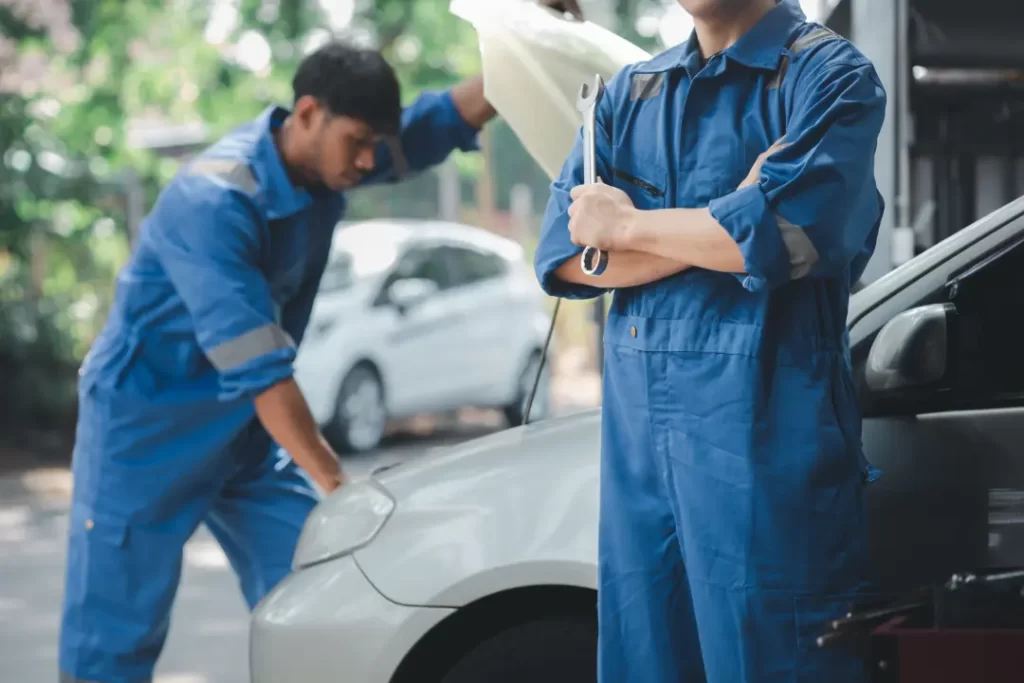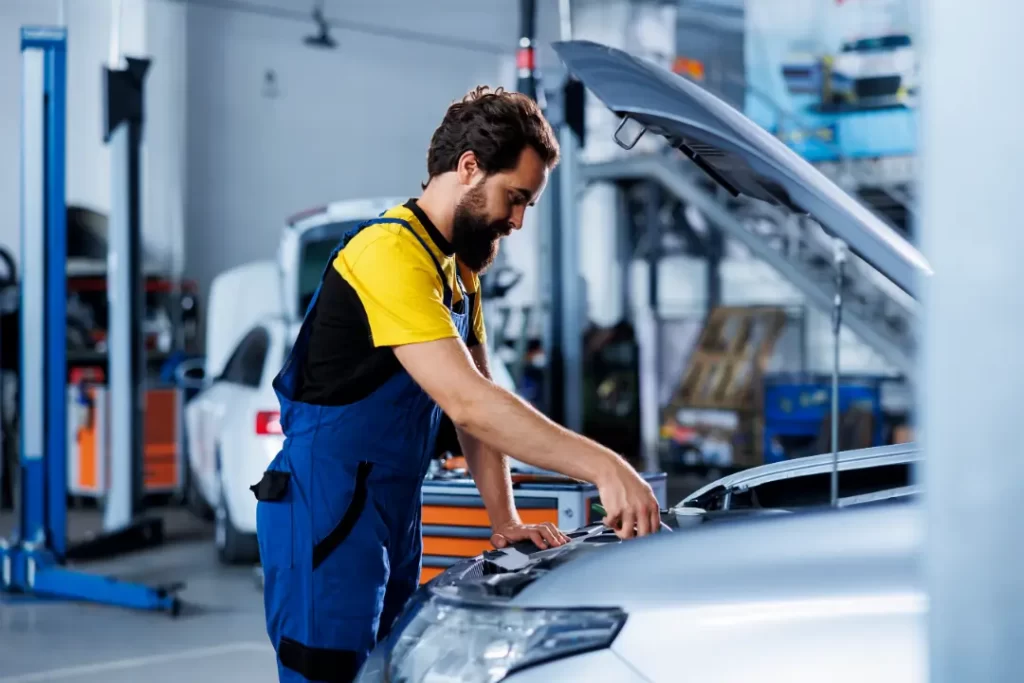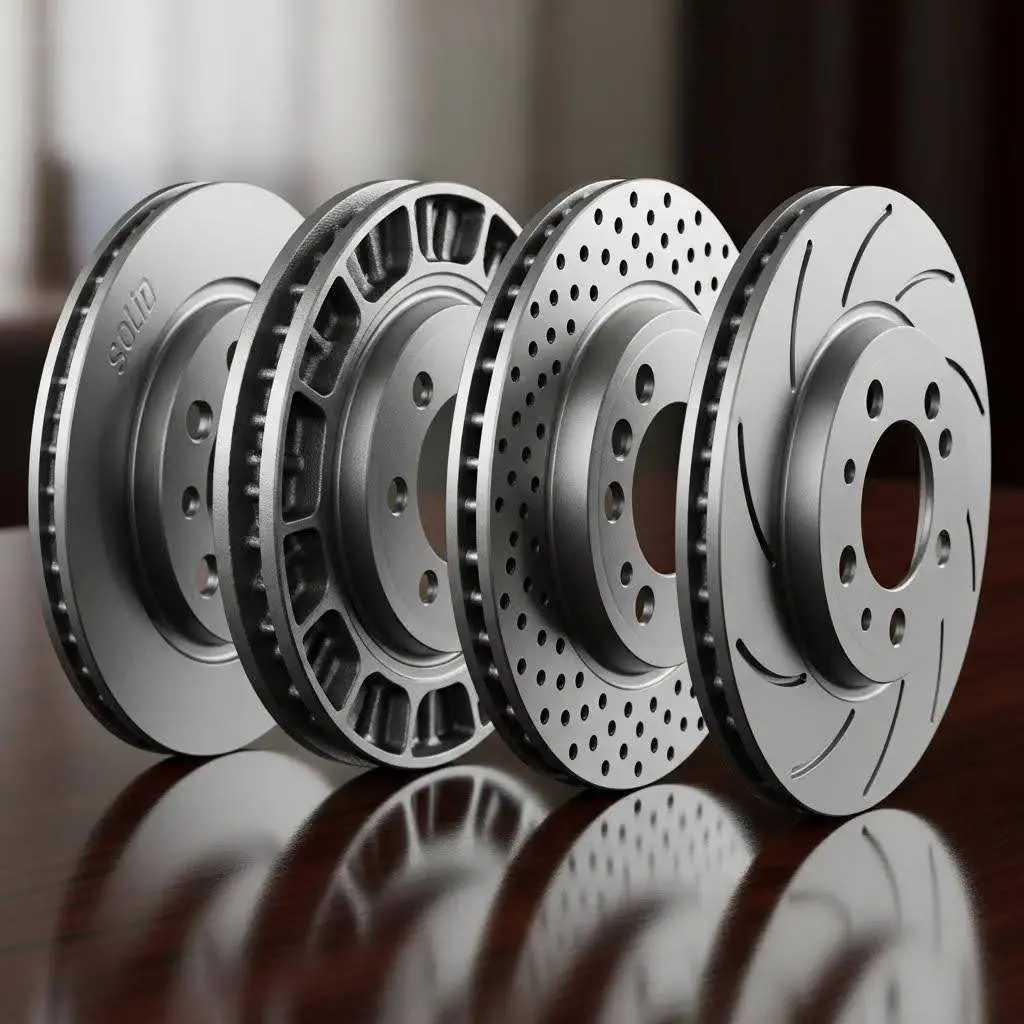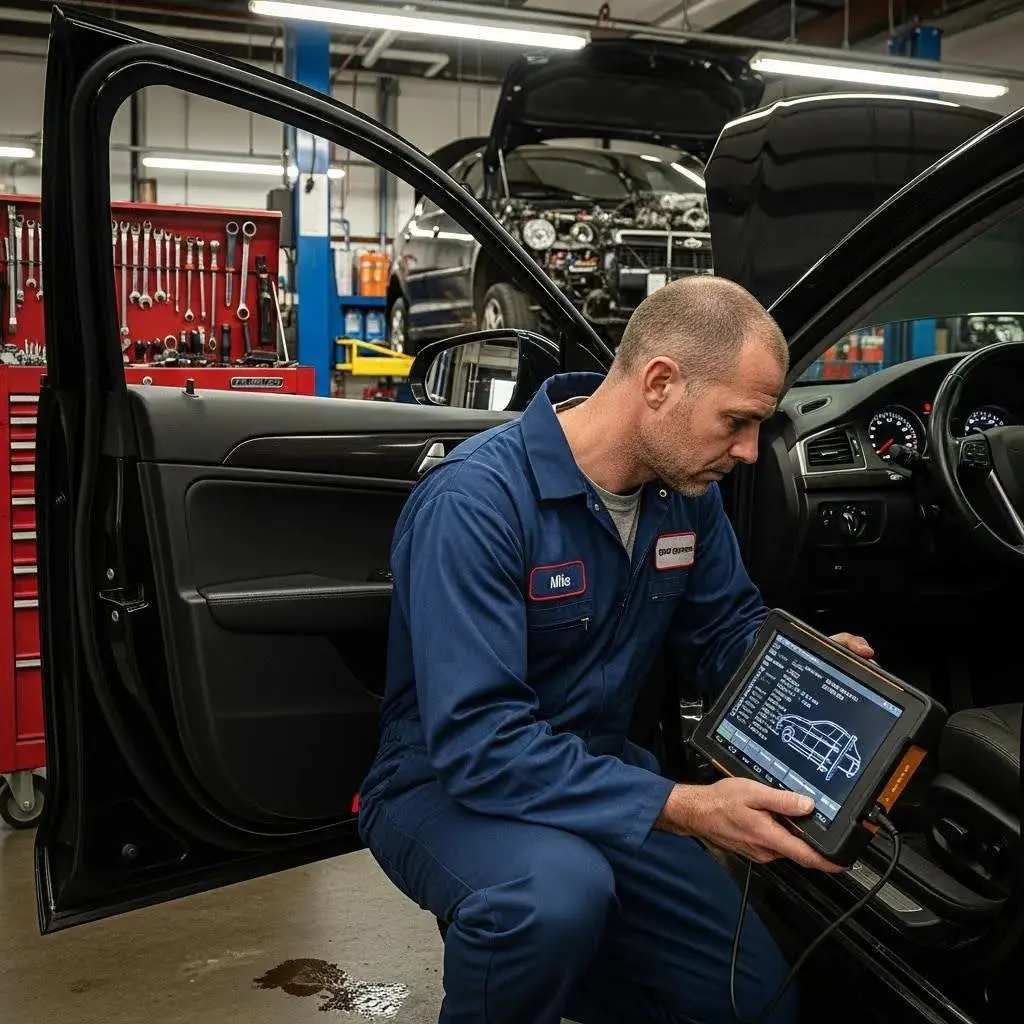Every car owner in Sittingbourne has to answer the same question from time to time: is it time for a minor service or a full major service? Knowing the difference between a major and a minor service is crucial for keeping your car running smoothly and safely while also protecting its value. In this guide, you will find:
- What a minor (interim) car service includes and why it benefits your engine
- The details of a major car service and how it can extend the life of your vehicle
- A straightforward comparison of minor, full, and major services
- Recommended service schedules based on your mileage, driving habits, and manufacturer guidance
- Why All Vehicle Services in Sittingbourne is your best choice for reliable maintenance
- Practical tips for maintaining your car in great condition between services
By the end, you will know exactly when to schedule each type of service and what checks to expect.
Key Takeaways
- Minor/interim services focus on essential checks like oil and filter changes, fluid top-ups, and safety inspections, usually every 6 months or 6,000 miles.
- Major services are comprehensive, covering all minor and full service checks plus brake fluid, cabin/fuel filters, spark plugs, and in-depth inspections every 24 months or 24,000 miles.
- Service frequency depends on manufacturer guidance and driving habits, stop-start city driving, heavy loads, or high mileage may require more frequent servicing.
- Safety & longevity benefits include maintaining engine lubrication, preventing corrosion, improving fuel efficiency, and catching issues before they become costly repairs.
- Service & MOT bundling can save time and money by combining essential checks into one appointment, reducing labour costs and spotting problems earlier.
- Choosing a trusted local garage like All Vehicle Services in Sittingbourne ensures clear pricing, experienced technicians, and tailored maintenance for your vehicle.
What Exactly Is a Minor (Interim) Car Service?
A minor service, often called an interim service, focuses on essential maintenance tasks, primarily oil and filter changes, topping up fluids, and important safety checks.
These steps help keep your engine running well and prevent parts from wearing out too soon. By handling these key tasks every 6 months or 6,000 miles, you ensure proper lubrication, catch potential problems early, and keep your warranty valid.

What Does a Minor Car Service Include? The Core Checks and Inspections
Here’s a breakdown of the main tasks performed during a minor service. These tasks aim to keep your engine healthy and meet basic safety standards:
- Replacing engine oil and filter to ensure proper lubrication and reduce friction.
- Visually checking brakes, tyres, and suspension parts for signs of wear or damage.
- Topping up essential fluids like coolant, brake fluid, and windscreen washer fluid.
- Checking and adjusting tyre pressures to the manufacturer’s recommended levels.
- Testing lights, horn, and wipers to make sure they’re working properly and are road-legal.
Each of these checks directly supports your car’s performance and helps you identify minor issues before they turn into bigger problems. This smoothly leads into the more thorough checks of a full or major service.
How Often Should You Get a Minor Service? Recommended Intervals and Mileage
Manufacturers and experienced mechanics generally recommend an interim or minor car service every 6 months or 6,000 miles, whichever comes first.
However, several factors can influence this schedule, including:
- Driving a lot of miles: Frequent long journeys can speed up oil degradation.
- City driving with lots of stopping and starting: This increases engine temperature fluctuations and wear.
- Towing or carrying heavy loads: This puts extra strain on filters and fluids.
Sticking to these intervals helps maintain your engine’s efficiency and prepares your car for a thorough full service at least once a year.
What Are the Benefits of Regular Minor Servicing for Your Vehicle?
Regular minor servicing offers three main advantages:
- Protects your engine with fresh oil and clean filters.
- Boosts safety by catching wear on brakes, tyres, and lights early.
- Helps maintain fuel efficiency by preventing sludge buildup and pressure loss.
These benefits lower the risk of breakdowns and ensure a smoother transition to your next full or major service.
What Exactly Is a Major Car Service?
A major car service is the most thorough routine maintenance your vehicle will undergo. It includes all the tasks from minor and full services, plus additional replacements and in-depth inspections. By carrying out this extensive check every 24 months or 24,000 miles, you protect complex systems, maintain peak safety standards, and extend your vehicle’s overall lifespan. To ensure your vehicle remains in optimal condition, it’s essential to follow car servicing schedule recommendations tailored to your specific make and model. This helps you anticipate when parts may need replacement, thereby reducing the risk of unexpected breakdowns. Staying proactive with maintenance not only enhances performance but also significantly boosts resale value.
What Checks and Replacements Are Included in a Major Service? A Full Service Checklist for the UK
Here’s an expanded list of the in-depth tasks that set a major service apart from other service types:
- Replacement of engine oil and all filters (oil, air, fuel, and cabin).
- Brake fluid change to prevent moisture buildup and corrosion.
- Spark plug replacement for optimal ignition and combustion efficiency.
- Comprehensive inspection of steering, suspension, and underbody components.
- Battery health test and charging system check.
- Examination of the exhaust system, drive belts, and cooling system integrity.
This complete set of tasks addresses every primary system, ensuring robust performance, legal compliance, and comfort on every journey.
When Should You Book a Major Service? Time and Mileage Guidelines
A major service is recommended every two years or 24,000 miles. However, certain driving conditions might require you to get one sooner:
- Consistent motorway driving where higher speeds create more heat
- Frequent short trips that don’t let the engine reach its full operating temperature
- Noticeable changes in performance, like rough idling or higher fuel consumption
Getting a major service on time makes sure all systems get complete maintenance before wear and tear lead to expensive repairs.
How Does a Major Service Improve Vehicle Safety and Longevity?
By changing critical fluids, inspecting safety-sensitive parts, and replacing ageing wear items, a major service:
- Restores braking performance with fresh brake fluid and pad checks.
- Preserves engine health through clean filters and new spark plugs.
- Prevents corrosion in the cooling and lubrication systems.
These interventions collectively reduce the likelihood of breakdowns, help maintain your car’s resale value, and support safe operation throughout its life.
How Do Major and Minor Services Compare? Key Differences and Similarities
Minor, full, and major services all share the same goal: to keep your vehicle safe and performing well.
However, they differ in terms of what’s included, how often they’re needed, and their cost.
| Service Level | What’s Included | How Often |
|---|---|---|
| Minor/Interim | Oil & filter change, fluid top-ups, basic safety checks | Every 6 months/6,000 mi |
| Full/Standard | All minor tasks plus air filter, spark plug checks | Annually/12,000 mi |
| Major/Comprehensive | Full service plus fuel & cabin filter, brake fluid | Every 24 months/24,000 mi |
The Main Differences Between Major and Minor Car Services
Major services include all inspections and replacements found in minor and full services. They also pay special attention to parts that wear out over time, such as brake fluid, cabin filters, and spark plugs.
Minor services concentrate on important lubrication and safety checks. Major services work to restore several systems to their original factory standards.
A full (standard) service serves as a middle ground, offering annual maintenance. It covers minor service tasks and adds an air filter check and an engine diagnostic scan.
This intermediate check makes sure that systems needing more than just basic lubrication receive attention before you reach the point of a major service.
Typical Service Durations and Costs for Each Service Type
Here are approximate times and costs for independent garages in the UK, including Sittingbourne:
| Service Level | Typical Duration |
|---|---|
| Minor Service | 1–1.5 hours |
| Full Service | 2–3 hours |
| Major Service | 3–4 hours |
How Often Should You Service Your Car?
The right service intervals depend on manufacturer guidelines, your driving habits, and local conditions in and around Sittingbourne.

Manufacturer Recommendations for Service Intervals
Most vehicle manufacturers recommend:
- Interim (minor) service: every 6 months or 6,000 miles
- Full (standard) service: every 12 months or 12,000 miles
- Major service: every 24 months or 24,000 miles
Keeping your service record stamped as suggested helps maintain your warranty and resale value.
How Do Driving Habits Affect Service Frequency?
Driving in urban areas with lots of stopping and starting, taking frequent short trips, or navigating hilly routes around Kent can increase engine heat cycles and wear on brakes and clutches. Drivers who cover high mileage might need to double their interim service frequency to protect against sludge buildup and component fatigue. Understanding summer tyre performance versus winter tyres is crucial for ensuring optimal handling and safety throughout the year. In regions like Kent where weather conditions can vary significantly, choosing the right type of tyre can greatly impact vehicle performance. Drivers should consider local climate trends and seasonal changes when making their selection to promote better traction and control on the roads.
Can You Combine Services with MOTs for Convenience and Savings?
Booking your MOT and service together can be a smart move. By combining them, technicians can work on both checks during the same appointment, saving on labour time and reducing the hassle of multiple visits. This not only helps spot safety or mechanical issues earlier but may also cut down on booking fees. The result? Greater convenience, potential cost savings, and peace of mind knowing your car’s roadworthiness and maintenance are handled in one go.
Why Choose All Vehicle Services in Sittingbourne for Your Car Servicing Needs?
Choosing a trusted local vehicle repair specialist means you’ll receive personalised attention, clear pricing, and professional advice tailored to your vehicle and how you drive.
Our team brings several years of combined experience in automotive repair, supported by ongoing manufacturer training and practical expertise with a wide range of makes and models. This deep knowledge leads to accurate diagnostics and efficient maintenance.
All Vehicle Services provides a clear, written estimate before any work begins. By sourcing quality parts and optimising our labour processes, we offer affordable service packages without any hidden charges, allowing you to budget with confidence.
How Can You Maintain Your Vehicle Between Services? Tips for Ongoing Car Care
Regular care between professional services helps keep your car running smoothly and prevents small issues from becoming major ones.
Routine Checks
- Check and top up engine oil and coolant levels every month
- Inspect tyre tread depth and pressures weekly for safety and fuel economy
- Visually check brake pads and discs for wear before long journeys.
These simple steps complement the benefits of your next professional service.
If you notice warning lights on your dashboard, hear unusual noises or feel vibrations, or experience a sharp drop in performance, book a diagnostic scan promptly. Early intervention helps protect system integrity and avoids costly breakdowns.
Frequently Asked Questions About Major and Minor Car Services
What Is the Difference Between a Major and Minor Car Service?
A minor (interim) service focuses on essential oil, filter, and fluid checks every 6 months/6,000 miles. A major service is a comprehensive check every 24 months/24,000 miles, adding brake fluid, cabin filter, spark plugs, and in-depth system inspections.
How Long Does a Major Service Take Compared to a Minor Service?
A minor service typically takes 1–1.5 hours to complete, while a major service lasts 3–4 hours due to the additional parts replacements and thorough system checks involved.
Is a Full Service the Same as a Major Service?
No. A full (standard) service combines minor tasks with annual checks of air filters and basic engine diagnostics, whereas a major service goes further by replacing cabin and fuel filters, brake fluid, and spark plugs.
How Does Regular Servicing Prevent Costly Repairs?
Consistent oil, filter, and fluid changes remove contaminants and reduce heat stress, slowing down wear on pistons, valves, and bearings. Catching worn brake pads or a leaking hose early can prevent damage to callipers, cylinders, or engine components, saving you significant repair bills later on.
How Can I Book a Major or Minor Service at All Vehicle Services?
To arrange your next service, contact All Vehicle Services by phone or use our online booking form to choose your preferred date, specify the service type, and receive an instant, no-obligation estimate based on your vehicle details.
Conclusion
Regular car servicing is an investment in your vehicle’s reliability, safety, and long-term value. By understanding the differences between minor, full, and major services, and following the right schedule based on your driving habits, you can avoid unnecessary breakdowns and expensive repairs.
Whether it’s routine lubrication or a full system overhaul, combining your service with an MOT and working with a trusted local garage ensures peace of mind and consistent performance on the road.


